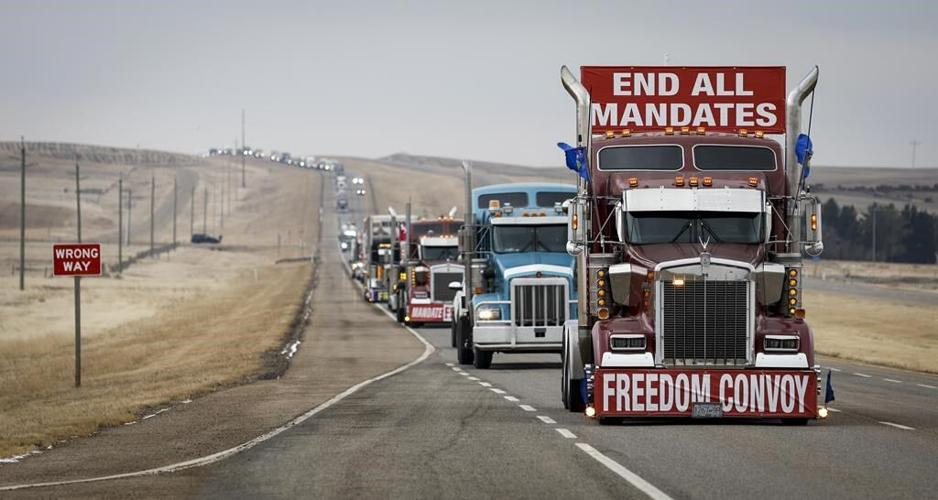
Picture Credit : The Canadian Press
In Lethbridge, Alberta, three men have been found guilty of mischief for their involvement in the 2022 protest blockade at Coutts, Alberta, related to COVID-19 rules and restrictions.
Following a three-hour deliberation on Tuesday night, jurors delivered the verdict against Alex Van Herk, Marco Van Huigenbos, and Gerhard (George) Janzen. Their actions led to a disruption of cross-border traffic between Canada and the United States for a two-week period in early 2022. The courtroom was filled with supporters of the trio, and gasps of surprise were audible upon hearing the verdict.
The trial took place in the Court of King's Bench, where Justice Keith Yamauchi cautioned the attendees against disrupting the jury's verdict. The defendants were consoled by around three dozen supporters outside the court, with Van Huigenbos and Janzen embracing each other.
Expressing a mix of disappointment and acceptance, Van Herk acknowledged the jury's decision and emphasized his commitment to holding politicians accountable. Both Van Huigenbos and Van Herk expressed readiness to face the consequences, with the maximum sentence for their offence being 10 years in prison.
Despite their intentions to not appeal, concerns about the impact of potential jail time, particularly on their families, were expressed. A pre-sentence report has been ordered for all three men, with the sentencing hearing scheduled for July 22.
During the trial, Crown prosecutor Steven Johnston emphasized that active participation in the blockade was sufficient for a guilty verdict, highlighting the accused's roles as prominent figures during the protest. Defence lawyers chose not to present evidence or call their clients to testify. However, they argued that the defendants were not leaders but rather acted as messengers or facilitators.
In his closing argument, Ryan Durran, representing Van Huigenbos, portrayed his client as a conduit of information rather than a leader, while Michael Johnston, representing Van Herk, underscored his client's attempts to persuade protesters to disperse and his concerns about violating federal laws. Alan Honner, Janzen's lawyer, depicted his client as a helpful individual who cooperated with both protesters and law enforcement.
Throughout the trial, testimonies indicated that leadership roles gradually emerged among the accused, with the RCMP increasingly relying on them for negotiation as the protest persisted.
The verdict marks a significant development in the legal aftermath of the Coutts blockade, highlighting the complexities surrounding individual responsibility and collective action during protests.















